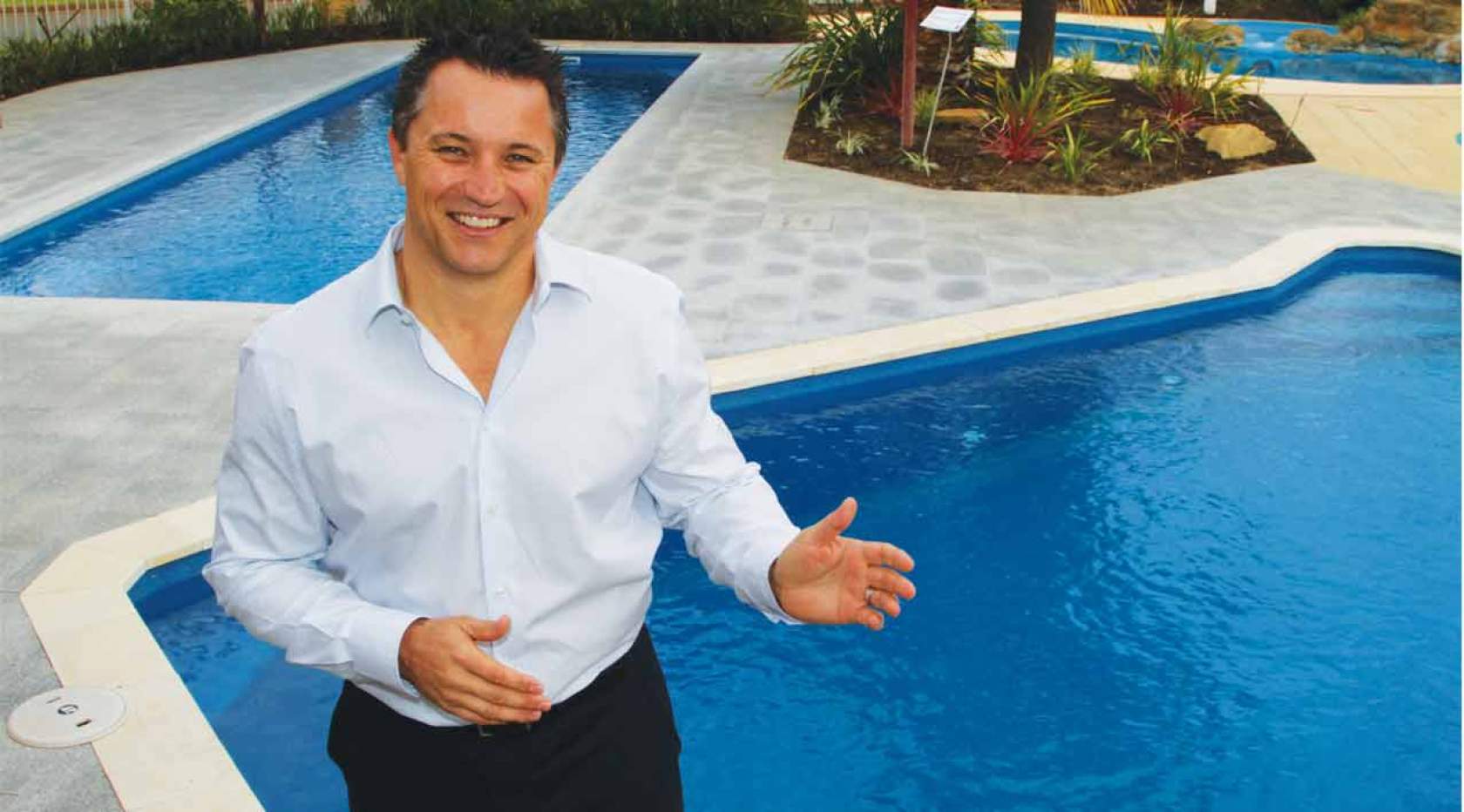Ben Beale Laboratory to open to help prevent heart disease

A cardiovascular research facility named after Aquatic Leisure Technologies former executive director Ben Beale is being established in Perth to help fight the causes and mitigate the effects of heart disease.
The Victor Chang Cardiac Research Institute has joined forces with the family of Ben Beale, a father of five from Perth who tragically passed away from a heart attack in 2017. The Ben Beale Laboratory in Cardiovascular Research is due to formally open in mid-2022, representing the five-year anniversary of his passing and will be a lasting and fitting legacy
To save thousands of other families from heartache in the future, the Ben Beale Laboratory at the Victor Chang Cardiac Research Institute’s centre at the University of Western Australia will accelerate new treatments for cardiovascular disease and atherosclerosis.
“After Ben’s passing, I had a number of colleagues in the industry share their stories about family members and friends that have been impacted by heart disease, and a lot of people in the industry wanted to find a way to help,” says Lynley Papineau, managing director of Aquatic Leisure Technologies and Ben’s sister.
“Ben’s wife Sarah has been working with the Victor Chang Cardiac Research Institute to establish The Ben Beale Laboratory, with the aim of raising much needed funds to accelerate research in heart disease and enable the institute’s world class scientists and researchers to continue their work to fight this deadly disease.”
Papineau says heart disease is the number one killer in the world and as such it is important to be able to fund research and gain a better understanding around preventative measures and treatments.
How can you help?
Funding for the Ben Beale Laboratory will progress cardiac health research and strengthen cardiovascular research in Western Australia, enable cutting edge breakthroughs and lead the way to pursue bold and impactful research projects throughout the world. The lab will be able to continue to make meaningful and impactful breakthroughs and discoveries and support young scientists through PhD and post-doctoral fellowship programs, as well as purchase necessary cutting-edge technology to support the world class research.
One hundred percent of the funds will be directed to the institute’s executive director Professor Jason Kovacic and Professor Livia Hool specifically to advance research relative to atherosclerosis and heart disease in Western Australia.
Different ways to help:
• A Foundation Gift of $50,000 p.a. for five years will support a senior scientist in their quest to cure the number one killer.
• A Chairman Gift of $25,000 p.a. for five years will help fund a post-doctoral fellow as they take their projects to the next level.
• A Partner Gift of $10,000 p.a. for five years will help fund a PhD student at the start of their scientific career.
• A Donor Gift of $5,000 p.a. for five years will help purchase cutting edge equipment vital to help making scientific breakthroughs possible.
Contact: Andrea Dawber, Senior Philanthropy Manager, Western Australia, Victor Chang Cardiac Research Institute
Phone: 0407 554 304
Email: a.dawber@victorchang.edu.au
Website: www.victorchang.edu.au
Atherosclerosis
Ben tragically passed away from a heart attack caused by the heart disease, atherosclerosis. He was just 47 years old and unaware he was suffering from cardiovascular disease, which takes the lives of one in three Australians. He was at the peak of his health, fitness and weight goals and had been medically cleared for a charity boxing fight just a week before his heart attack. A coronary calcium score and ECG test 13 months prior had deemed him at “low risk” of a coronary event.
His death was originally described as a “one-off catastrophic event” but researchers now know otherwise.
Atherosclerosis sometimes called “hardening of the arteries” – is the disease that causes most heart attacks. An investigation of Ben’s medical history by Professor Jason Kovacic, the executive director of Victor Chang Cardiac Research Institute, and a world expert on atherosclerosis, was able to identify the possibility that Ben had an increase in a cholesterol-related particle called Lipoprotein(a), or “Lp(a)” for short, which raises the risk of heart attack and stroke.
International clinical trials of new targeted therapies to reduce Lp(a) are also taking place – which will reduce the risk of heart attack due to Lp(a) in the next few years. Despite these incredible advances, there is no cure for atherosclerosis. The VCCRI, Ben’s family and scientists across the country are determined to change that and continue to work towards finding a cure to prevent Australia’s biggest killer, heart disease.
Caption: Ben Beale with Aquatic Leisure Technologies display pools



